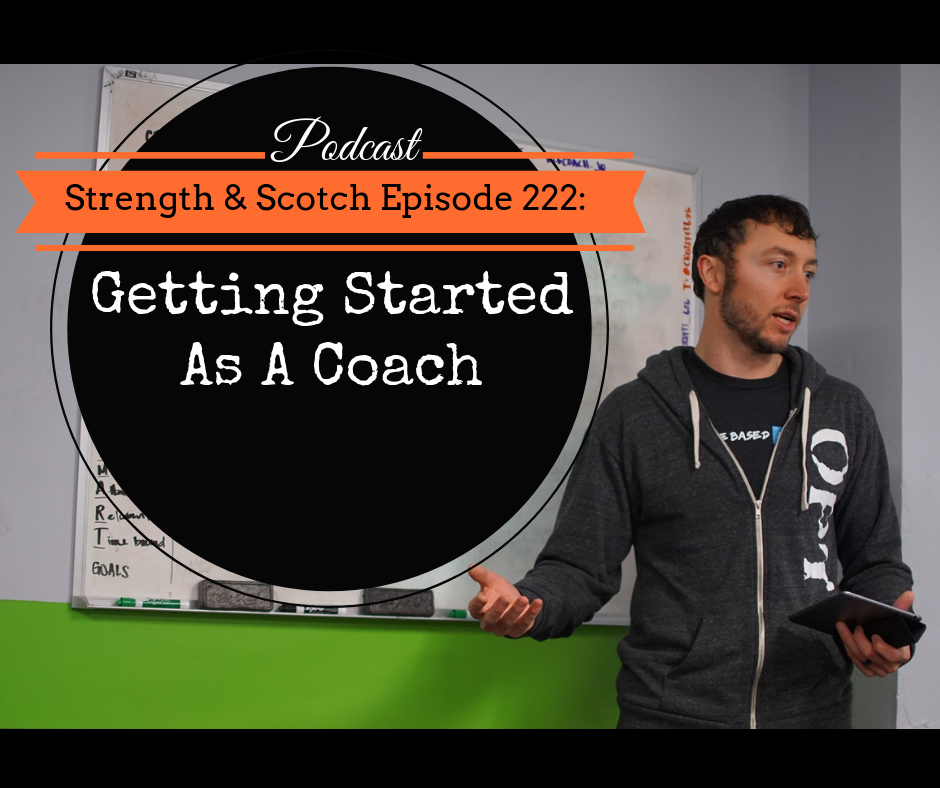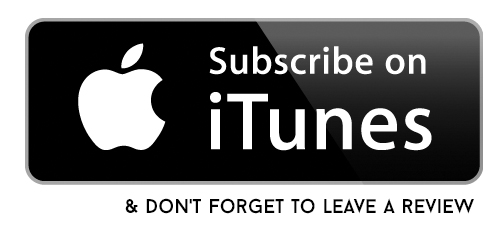Episode 222 Show Notes
Grant and Heavey talk about making coaching your new career. Find out what certifications to take and how you can get them. They also touch on qualities of becoming a great coach and the importance of finding your own niche within the ever-competitive fitness industry.
[02:40] Safer and More Effective Sunscreens
Grant presents an article about how sunscreens may soon become more effective because of a rule change that the FDA announced. Under the current system, there are 16 ingredients approved for the purpose of sunscreen. The new guidelines, however, say that only two are generally recognized as safe and effective. Two of them are now considered to not be safe any longer and not allowed. The other 12 are said to not have enough evidence for it to be allowed to be stated as sunscreen. The two that have been approved are zinc oxide and titanium dioxide.
Another interesting thing here is that UVB is the one that makes your skin red and gives you sunburn, but UVA is the real, dangerous one. But did you know that a lot of products on the market only block UVB? Even high SPF sunscreens may have very little or no UVA protection and you could stay out in the sun, not get sunburned, and not know it.
Nevertheless, you have to balance the risk and benefits of different things. Moving forward, FDA is going to make all sunscreens that have SPF-15 on up have what’s called broad spectrum and anything labeled broad spectrum currently also has to have both UVA and UVB blocking.
Additionally, they’re going to try to get rid of anything under SPF-15 as they don’t do a whole lot for protection. Also, they’re going to stop allowing the super high SPF numbers, anything above 60. So they’re going to cap it at 60+.
Interestingly, a lot of these rules already exist in Europe. It’s the U.S. system that allowed these crappy products on the market. Going back to supplements, they also have a more refined system. Grant’s major takeaway here is that you should know what you’re buying and what you’re putting on or in your body.
[09:09] Question from Dale
Dale left a voicemail on the website and he says this: “My family and I will be moving to the U.S. in the next two or four years. I’m looking to use this move as an opportunity to change careers. Training to become a wellness coach is something that I’m seriously considering.”
[10:10] Online Courses and Certification
1. What online courses would you recommend as being well-respected, if any? I imagine the practical testing will always need to be done in person but I’m hoping that theory can be done online.
Not really sure what exactly that Dale wants to become as you could be a sports team coach, nutrition coach, or work within a hospital setting. Starting from a broad spectrum of wellness coach is where the idea begins. But you really have to think and consider what you’re attracted to. What element of wellness is something that gets you excited or you think would draw you in. You need to at least have some initial direction and can always change course as you go along, but you should have some idea of which way you want to head.
[12:12] Personal Training and Nutrition Certifications
If you want to be personal trainer, you probably need a certification from a well-respected organization like NASM to get hired at a big gym. For these courses, the materials are available online. Even if you don’t have access to a testing facility to do the actual testing, you can still study prior to that. There’s no shortage of materials. Look for a well-respected organization that you can start their basic personal trainer certification and go from there.
If you’re interested in nutrition, Heavey recommends Precision Nutrition Level 1 Certification. This is an online course available worldwide. This is something you can get certified wherever you are in the world.
[13:12] The OPEX Training
There’s no real shortage of certification organizations. You have to know the direction that you want to go down. If you want to work with individuals, Heavey recommends the OPEX training which he finds very powerful due to its well-roundedness. It gives you pieces you’re not even aware that you need. It’s about relating to people and asking probing questions to see why they want to achieve the goals they’re expressing to you.
Within their Level 1, they have different courses such as Exercise Program Design, Nutrition, and Business Module. Another important piece that is often overlooked is understanding how to evaluate people to know how to better inform training programs and nutrition prescriptions.
[16:22] Distance Courses
Question #2: Is it possible to start a U.S.-distance course while overseas and perhaps do any practical work when we move to the U.S.
Heavey again stresses that depending on what you’re doing, things like Precision Nutrition, online iTunes courses, etc., you can certainly do that stuff.
Moreover, there are some courses that have a practical component but there’s so much you can do that can provide value to you as a coach that doesn’t require any presence within the U.S.
[17:10] Crossfit Level 1 Certification
This was actually the first certification that Heavey has ever done within fitness and he got a lot out of it. However, he believes that this only scratches the surface. Unless you intend to train within a Crossfit gym or own one, there are better avenues to pursue.
[18:22] Duration of Courses
The duration depends on what you’re hoping to accomplish. It could take years to become a registered dietitian or a month to get a personal trainer certification. If you’re committed to helping people get healthier, you’re going to commit to a lifetime of learning and self-study to stay current.
Book learning is just one element of that as there are a lot of practical pieces in providing valuable insights.
[19:20] Heavey is Not a Cheerleader!
Question #3: What are the worst parts of the career for you and what are the best parts?
Heavey explains that people have different personality types that may do better or worse for different roles within the industry. For instance, Heavey admits not being a cheerleader and the absolute worst at pushing people to go harder or cheer them on. There are certain people that need to be yelled at or like to be yelled at. That being said, it’s good to be who you are. Each person resonates with different people in different ways. If you’re uniquely yourself, lean into that as much as you can. You will speak to certain people and you’re setting yourself up for success. Heavey acknowledges that he’s not the best nutrition coach for everybody because he might not speak to them the way they need to be spoken to.
[22:55] Qualities that Make a Good Coach
Heavey underlines the importance of being open-minded. You get personal gratification from helping people achieve something. Ultimately, you’re helping people get healthier and stronger. If you don’t feel reward from that personally then you’re going to get drained and not enjoy the business at all.
That said, Heavey warns that this is a grind. Fitness is an ultra-competitive industry and it’s very difficult to carve out a niche, stand out, and build a business. It’s not likely to build the business quickly or make a lot of money quickly.
Moreover, being a lifelong learner is another important trait, and if that’s going to overwhelm you, then it may just not be a good fit.
[26:35] The Carnivore Diet
Heavey tends to allow people their preconceived notions and then evaluates their situation and sees what seems to be holding them back relative to their top priority. He evaluates clients as a whole to see if it is in fact their diet that’s holding them back. If it is the biggest piece, then he’s going to have a conversation with them about the diet upfront before they even start working together.
[28:13] Starting Your Coaching Career in a Gym
Question: Are many coaches one-man-bands or part of a bigger group?
Heavey explains that most coaches start within a gym environment. It’s hard to start your own business from scratch. Especially when you have no experience, starting in a gym where they have this established funnel and send clients to you, it’s a great place to be initially.
Most Crossfit coaches are doing this as a part-time thing. They have a full-time job and then they go in a couple of times a week and coach.
After you know what the gym does well, or poorly,and after you’ve learned what your unique perspective is – basically, once you’ve figured out your own approach, then you can start branching out and form your own company.
It’s a hassle to find your own clients but the rewards can be better. For instance, Heavey chats with prospective clients to determine if they will be a good fit working together. Through this, he is able to pick the clients that he will really enjoy working with.
[31:45] Priorities, Priorities
Ultimately, realizing that you’re working with humans and trying to convince them to prioritize something that’s a future win over near-term indulgences. This is a tough thing to do since it’s counterintuitive to our drive as humans.
Heavey points out that you have to be a student of the human condition to succeed as a coach. An ideal training plan is no good unless you can actually get the person to do it. Finally, take the time to learn about humans and psychology.
[34:18] Finding Your Own Niche
Question: Is there a particular group of clients you would recommend focusing on?
Focusing on any hyper-specific group of people especially one that you can uniquely relate to is absolutely the way to go. As mentioned earlier, fitness is a super crowded space. So if you can find an underserved audience, then the potential to carve a niche out for yourself.
At some level, the basics are the basics. If all you have to do is convince them to do basic things then you get results. But if they struggle after doing that, that’s where the expertise that you can get from all the learning and reading that moves the needle for you. Reading literature also resonates strongly with people within health and fitness.
Links
Sunscreens May Soon Become More Effective
Any question? Leave a voicemail on the website strengthandscotch.com or email them at [email protected] or [email protected]. You can also reach out to them on Instagram, Facebook, or Twitter.

Check out the gear page for everything Strength & Scotch! You’ll find a listing of all the supplements and other programs we’ve discussed on the show as well as our killer t-shirts!

